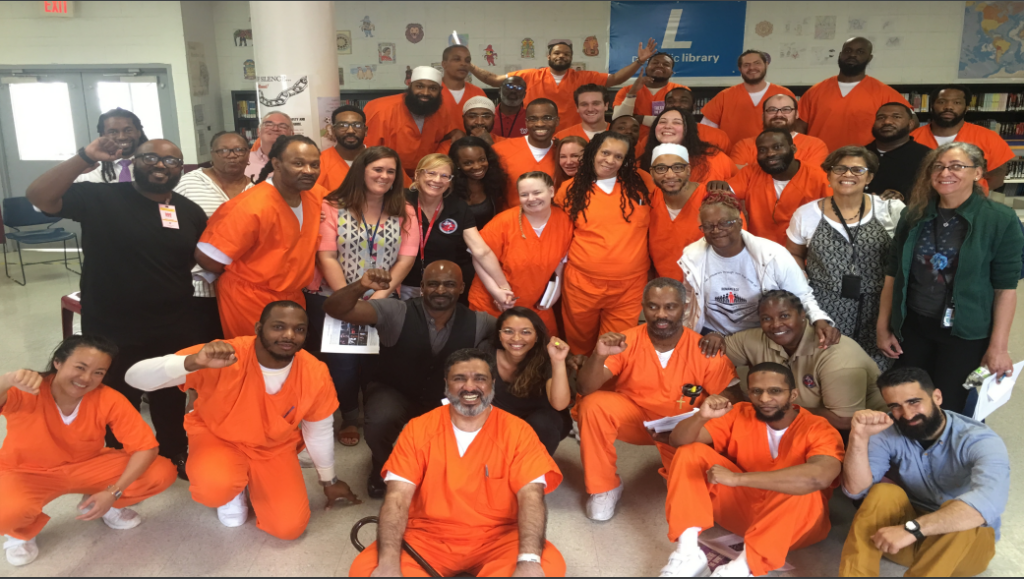Maria Gaspar, Rift, Rupture, Split, Digital Glitch of the Cook County Department of Corrections, Chicago, 2021.
The Center for Justice (CFJ) at UCLA works to end injustice and inequities on the basis of race, gender, class, sexual orientation and disability. We work to dismantle the prison industrial complex and racialized mass incarceration by expanding higher education, facilitating creative spaces, transformative practices, and movement building on university campuses, in system-impacted communities and correctional facilities.
CFJ forges a collaborative hub using critical pedagogy, culturally-sustaining and multi-disciplinary methods. Linking prisons, classrooms, and grassroots organizations, our work is guided by those who experience incarceration and are system-impacted. We recognize equal access to education is at the heart of systemic and structural change towards justice.

In 2015, women incarcerated at the California Institute for Women (CIW) wrote letters requesting a UCLA “Center for Incarceration Studies.” Their proposal called for higher education opportunities to cultivate critical thinking skills and develop innovative approaches to justice.
Since 2016, the UCLA Prison Education Program has provided courses in seven carceral facilities in Southern California. Our courses bring UCLA professors and students into prisons for classes and workshops with incarcerated students.
Ending the use of jails, prisons and detention centers to address social problems such as poverty, inadequate public education & substance abuse and replacing policing and surveillance with services for human justice.
Bringing together “inside” incarcerated and “outside” university students, faculty and community members for higher education through courses, workshops and research.
People directly impacted by mass incarceration, collaborating with artists from all media, and using the arts & culture to change the law.
Guiding and learning from the next generation of visionary artists, activists and scholars by centering justice and healing to transform our communities.
Imagining, creating and expanding local, national and global movements for a more humane justice system shaped by survivors of crime and mass incarceration.

Bringing together “inside” incarcerated and “outside” university students, faculty and community members for higher education through courses, workshops and research.


